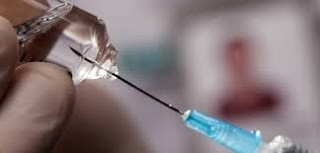Zika virus is a mosquito-borne infection associated with birth defects and neurological complications in adults. However, no approved vaccine or treatment is currently available for treatment of Zika virus. A new generation DNA-based Zika vaccine demonstrated both safety and ability to elicit an immune response against Zika in humans in a phase 1 clinical trial.
Synthetic DNA vaccines are an ideal approach for infectious diseases like Zika, this new generation of DNA vaccines can be designed and manufactured rapidly, they appear to be highly predictable for the generation of immunity in humans, having significant conceptual safety advantages, and they are more stable than some of the traditional vaccines, making them exceptionally practical to distribute during outbreaks, especially in regions where resources are limited.
The GLS-5700 vaccine contains the synthetic DNA instructions for the host to learn how to mount an immune response against a specific Zika virus antigen. Researchers enrolled some participants in the safety trial, two groups of different participants received two different doses of the vaccine candidate intradermally at zero, four, and 12 weeks.
Each dosage was followed by Cellectra delivery which generates small, directional electric currents into the skin to facilitate optimal vaccine uptake, production of the intended antigen, and immune responses. Results showed that two weeks after the final dose 100 percent of study participants developed Zika-specific antibodies and 80 percent developed significant neutralizing antibodies against the virus.
Serum from the study participants was able to protect immunocompromised mice from developing the disease after infection with Zika virus, showing that the vaccine-induced antibodies can prevent infection in living organism. Result of this research showed that DNA vaccine can produce an immune response against the virus with minimal adverse effects.
haleplushearty.blogspot.com


